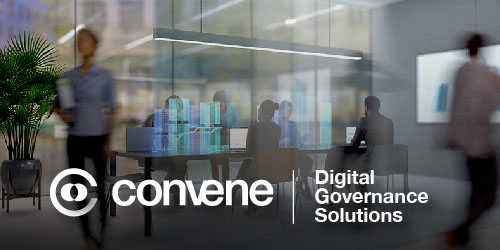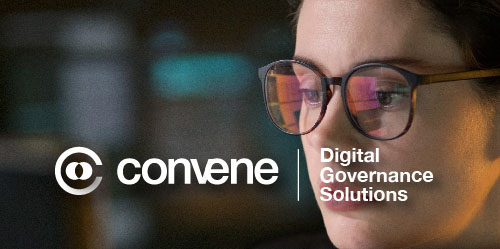With an uncertain year ahead, and a continuing cost of living crisis, this financial year for charities and non profits will be even more impactful. Understanding burgeoning governance issues in the sector is one way charities can prepare themselves for the year ahead.
7 min read
Governance Issues affecting Charities in Financial Year 2025
By Lottie Wright on 04/04/24 15:50
Topics: Governance Charity Business Insights
7 min read
Does your organisation need a CSO?
By Lottie Wright on 01/02/24 11:00
When sustainability is discussed, ESG specialists usually emphasise the significance of having a committed individual responsible for overseeing initiatives. This can help to maintain and enhance sustainability across the entire organisation.
Linda Fisher was the first person to receive the title of “Chief Sustainability Officer” in 2004, when she was hired by DuPont. Following this, there has been a surge of similar positions cropping up at major companies. As of 2021 the number of CSOs worldwide has tripled, in comparison to 2016.
The duties of the CSO position have continued to evolve with the ever-changing ESG landscape. But the question is: what exactly is the role of a Chief Sustainability Officer and does your organisation need one?
The Role of the CSO
There still seems to be a lack of clarity surrounding the role of the CSO. Having a CSO doesn’t immediately guarantee company-wide sustainability. Sustainability cannot be left to just one person, or confined to one area of an organisation. It needs to be integrated throughout all levels of a company.
The role of a CSO includes overseeing risk, fostering resilience, and guiding the behaviour of stakeholders: employees, businesses, investors, governments, and regulators.
A CSO is responsible for a company’s environmental impact, resources and plans. Although environmental issues are critical to the role, there is a growing number of CSOs who are bringing the S and G aspects of ESG into the role too.
The scope of the CSOs responsibilities differs greatly across industries and organisations, depending on their significant social and environmental influence. However, their general function is to analyse potential changes in the external sustainability landscape, then assess the strategic implications for their company. They then need to help ensure that their company fulfils its environmental, social, and governance commitments.
The Responsibilities of the CSO
The specific responsibilities the CSO has in managing an organisation’s ESG and sustainability goals can include:
Ensuring regulatory compliance.
Topics: Governance Sustainability ESG Business Insights
8 min read
Ways to increase your Board's Long-Term Impact
By Lottie Wright on 23/01/24 14:00
Establishing an effective Board is one thing, but maintaining that effectiveness in the long-term is another factor altogether. Ineffective Boards can have disastrous consequences for an organisation, impacting the success and longevity of a company.
These times demand more from the Board. The last few years have been tumultuous and unpredictable, with the COVID-19 pandemic and cost of living crisis. This has hindered the Board’s ability to plan for the long-term.
But it is still important to focus on the future, even in the face of uncertainty. Convene is here to help demonstrate the ways your Board can effectively secure your organisation's long-term success.
1. Improve Board relations, communication and culture.
Making boards more resilient and effective means creating a cultural space where directors can scrutinise, challenge and debate. This requires the recruitment of a diverse Board, as well as getting the right Board structure and culture. When a Board and its members can work efficiently together, it increases their effectiveness in the long-term.
Board Members, now more than ever, are involved with strategy, technology, IT, cybersecurity and other issues. They are also spending more time with management than ever before.
The most effective Boards go beyond their duties in the meeting room. They encourage a close partnership with their senior management team to create forward-thinking objectives, set goals for performance, and strengthen responsibility through open communications. Nowadays, Boards depend on management to guarantee the implementation of their strategies, and they monitor progress to stay informed.
Creating a Board that combines Board culture and relations with its objectives for attaining long-term value, will lead to the formation of an effective executive team.
2. Appoint an effective Chair for your Board.
Another way to improve Board relations and effectiveness is by appointing a chair who can facilitate this.
Effective Board leadership makes an effective Board. Board meetings can be stressful, particularly in times of economic downturn or crisis, when the stakes are high. The Board chair plays a crucial role in ensuring meetings run smoothly, and achieve what they set out to achieve.
The chair must have a clear agenda that balances both strategic and fiduciary topics. They need to be able to encourage Board members to voice their opinions, and understand different perspectives while maintaining a clear vision of what needs to be done.
To enhance Board effectiveness, Boards need to be led by someone who can think of both the short-term and long-term goals of the Board, and consider this in all decision-making and discussion.
3. Implement, and then act on Board evaluations.
High-value Boards are now expected to do more than just provide strategic advice. They are now also required to actively work towards continuous improvement. These Boards must regularly evaluate their performance and make an effort to operate in a productive and effective manner.
A Board’s performance can vary over time and is dependent on many factors, such as Board composition, Chair leadership, and the life cycle of the organisation. It therefore needs consistent analysis.
Boards should conduct in-depth evaluation of their overall performance at least once per year, and add to this effort by holding regular feedback sessions after meetings.
Boards shouldn’t see this annual performance evaluation as a ‘box-ticking’ or ‘fill-out-the-template’ activity. Board evaluations need to facilitate a more thoughtful reflection of both individual and team performance, measuring this against specific goals.
High quality feedback, in both feedback sessions and overall evaluations , helps Boards and their directors recognise their areas for improvement.
A Board evaluation can be an extremely effective measure in determining whether a Board’s composition, structure and dynamics actually serve the organisation in both the short and long-term. The evaluation of the Board’s operations helps ensure it is running as effectively as possible, and maintaining longevity.
4. Invest in onboarding.
No matter a new Board member’s background or experience, it takes time to get used to an organisation’s strategy and culture. Especially with how Board operations can differ company to company.
Investing in thorough Board onboarding processes helps new Board members to establish themselves easily, so they can begin to make effective contributions and feel like a part of the Board.
Tailored onboarding practices towards both Board members and directors can help ensure all can participate in effective governance for the Board sooner, rather than later.
Effective Boards are those that take initiative, dedicate time to building relationships, and strive for constant improvement. By embracing these strategies, Boards can tap into their full potential and make a lasting impact on their organisation's ability to adapt and grow.
5. Factor in new and emerging trends.
Many Boards believe that they excel in providing value in conventional aspects like managing finances, monitoring risks, and enhancing productivity.
But as the last few years have taught us, Boards need to be not only capable in those sectors, but also be prepared to tackle emerging key issues such as cybersecurity and ESG.
To ensure Boards are successful in the long term they need to be not only sufficient in preparation, but also in analysing and adapting to surfacing trends. New risks in industries and sectors will require Board input, and it is crucial that Boards are prepared to not just continue on one course, but change for the future.
To create a lasting effect, it is crucial for the Board to readjust its usual priorities and consider new, long-term trends that contribute to value. These factors should be included in Board meeting agendas.
As the Board is primarily responsible for strategic supervision, Board members must possess adequate expertise in industry trends to effectively steer the company's long-term strategy.
6. Improve Board meetings and information sharing.
Boards need their meetings to run smoothly, and they need systems and software that facilitates this. Without access to relevant information easily, Boards cannot effectively administer their duties.
Board portals are a highly-secure, online, centralised hub that can help you do just that.
Board portals facilitate a secured environment for sharing confidential documents and information. It enables Boards to exercise good corporate governance and decision-making responsibilities despite working in remote workplaces.
Convene’s own Board portal software can help your leadership team to communicate effectively and ensure your long-term success.
Convene provides directors and administrators with the necessary communication and collaboration tools that simplify Board material preparation, reports, and Board document sharing, among many other meeting-related tasks.
From creating an agenda to establishing a strong admin trail, every step of the process should be as smooth as possible. With a Board portal like Convene at your side, you can instead focus on making your Board maintain its effectiveness in the long-term, without having to sweat the small stuff.
How Convene can help you Board
Convene’s Award Winning Board portal software allows your Board to communicate efficiently and run meetings with ease, maintaining an effective environment for your Board.
Convene now comes fully integrated with Microsoft Teams, ensuring that the meeting process is even more seamless for your organisation, and improving Board effectiveness.
Our Board portal features include:
Topics: Governance Business Insights
6 min read
ESG Trends in 2024
By Lottie Wright on 15/12/23 15:25
As ESG practices and disclosures become crucial to a companies' public image, their investors and their overall success, 2024 looks to be a year of even further regulations and a ramping up of ESG policies.
Now, more than ever, it is important for organisations to prepare for ESG in 2024, and understand the trends we could be seeing in the future sustainability landscape.
But first, what was ESG like in 2023?
ESG in 2023
In 2023, organisations all over the world faced a turbulent landscape marked by a cost of living crisis, inflation, supply chain disruptions, and recessions fears. Amid this uncertainty, Environmental, Social and Governance practices became even more crucial for companies to undertake.
2023 was a turning point for ESG and emphasised the need for proactive ESG initiatives. ESG trends have been around for the past few years but there were some clear trends in 2023 that are important to remember going into 2024.
Sustainable Finance: Companies focusing on both financial revenue and the environment in their investments has gained momentum in the last year.
Supply Chain Resilience: There was a significant focus on supply chain resilience as an ESG trend. This was emphasised by the need to develop a supply chain that can maintain its efficiency in times of crisis, for example in a global pandemic.
Transparency and Ethical Practices: In order to steer clear of greenwashing accusations companies are putting in more effort to promote transparency and prioritise ethical business and governance practices.
The ESG landscape is continuing to evolve. With ESG maintaining its priority on the agenda, it is important for organisations to understand what is in store for the future of ESG, and what trends might be seen in 2024.
ESG Trends in 2024
Heading into 2024, there are both old and new ESG trends to be mindful of, especially for companies seeking to implement greater sustainability.
It is already shaping up to be a watermark year for ESG regulation with years of preparation finally ramping into action. This is particularly true in the EU, where the emphasis is now shifting to implementation after the introduction of numerous regulations over the last three years.
Here are the top trends to watch out for in 2024.
Topics: Sustainability ESG Business Insights
5 min read
Why Listed Companies Choose Convene
By Lottie Wright on 17/07/23 14:52
For many listed companies, investing in technology and software that promises security, reliability and streamlined communication is crucial in ensuring good governance and transparency with the public.
Listed companies are public companies, which means they must issue shares of its stock through an exchange, and adhere to the exchanges standards of corporate governance.
At Convene, our Board portal is designed to aid in achieving these good governance practices, and enables any publicly listed organisation to ensure their organisation has secure and seamless communication.
Here’s why listed companies choose Convene.
Streamlines Business Meetings
Listed companies do not always have time to waste on admin tasks that can be simplified by software. Convene is designed to improve your meeting process from start to finish and create more dynamic meetings.
The complex issues handled by companies during Board meetings mean that directors don’t need the added complication of confusing software.
The advantages of Convene’s software were noted by Chris Spanias, Solution Architect at Tesco Bank. In his words: ‘Convene has saved our admins time and increased efficiency when it comes to organising meetings.’
From the intuitive Agenda Builder to our auto-generated meeting minutes feature, Convene can simplify meeting administration. This means your team can reduce the time they spend on repetitive tasks and focus their attention on the important aspects of your meetings.
Convene is designed to streamline communication in your business meetings, increasing efficiency in meetings and ensuring collaboration is as easy as possible, especially when remote.
In an age increasingly regulated by remote interactions, it is essential your software is purpose-built for corporate governance.
As Afonso Cardoso de Menezes, Company Secretary of Bison Bank observed: ‘Convene facilitates and encourages vital international collaboration which is critical for success.’
Afonso crucially noted that: ‘Information is now accessible to Board members internationally in an instant.’ Fluent communication is at the heart of running a company, and our software streamlines this exchange.
Security And Data Protection
On top of all of this, Convene’s state-of-the-art security is designed to respond to evolving cybersecurity threats. With Convene, listed companies can get the best protection for their confidential data.
In the words of Chris Spanias, ‘Convene has the necessary security compliance standards and that was a prerequisite for us’.
With AES 256-bit encryption and CMMI Level 5 accreditation, publicly listed companies can feel confident their data is protected by Convene. The fully GDPR-compliant system offers 24/7 protection and support for all your security needs.
At Convene, we understand how important it is for companies to trust the software they use. Convene’s data protection makes a quantifiable improvement to Board meeting security.
Balances Cost And Functionality
With so many useful features, you might expect our Board portal to mean budgetary sacrifices. In fact, Convene provides a premium service for a reasonable price, and doesn’t sacrifice functionality in the process.
The features are also more than worth it in the long term. As Chris Spanias noted: ‘Once they switched over to Convene, our Board stopped using paper. [Our] study found that we save so much money on printing and paper alone that Convene has almost paid for itself every year’.
Ease Of Use And Reliability
Convene’s intuitive features make the software one of the most accessible solutions available. The interface is so easy-to-use that even the most technophobic Board members feel comfortable.
In the words of Christina Giannopoulou, the user-friendly nature of Convene was one of the main draws for Piraeus Bank. She told us that: ‘It was important for our members to be able to access information easily and to share important documents during meetings. We really liked the user interface of the Convene application, and we found it very user-friendly.’
At Convene, we are dedicated to providing easy-to-use and reliable Board portal software, so your company can upgrade your meetings without worrying about accessibility for your Board members. Convene offers unlimited training, so even those who are less 'tech-savvy' are supported during implementation.
Enhance Your Governance With Convene: Smart, Simple, Secure
Convene is an award-winning Board Portal designed to digitise and streamline your meeting processes from start-to-finish.
Now available fully integrated with Microsoft Teams, our comprehensive software has numerous features to support your listed company and its public operations:
Topics: Governance Board Portal Features Business Insights Why Convene?
6 min read
What Are ESG Risks?
By Lottie Wright on 27/06/23 14:49
As Environmental, Social and Governance (ESG) investing grows, consumers and investors alike look to engage with more sustainable businesses. With sustainability plans and strategies becoming a key part of an organisation’s future goals, it is important that Boards of directors be on the lookout for ESG risks.
ESG risks may vary in their components, but they share a common factor: they greatly affect a company’s profitability and sustainability in the long run.
Topics: Governance Sustainability ESG Business Insights
6 min read
What Is Shareholder Activism?
By Lottie Wright on 02/06/23 18:07
In recent years, many large companies have been subject to shareholder activism, which has been a very visible part of the global markets and continues to evolve. Shareholder activists have been making news for their attempts to challenge some of the largest corporations in the world.
In the past, activists were seen in a very negative light; they were often thought of as people who would take over a company for their own benefit without regard for anyone else's interests. Now, however, it is a lot more complex. It is no longer as simple to consider activism as an immediate threat, but rather a more varied phenomenon.
Topics: Governance ESG Business Insights
5 min read
The Difference Between A Board Of Directors And An Advisory Board
By Lottie Wright on 26/05/23 16:34
There are many different types of Boards an organisation can have, and there can be some overlap in their focus and purpose.
Almost every organisation will have a Board of directors, but not every organisation will feature an advisory Board. While there are commonalities between these two Boards, there are also some clear differences in their function within a company.
In this article, we’ll explore exactly what each Board does, and what they have in common, and what they do differently.
Topics: Governance Executive Committee Business Insights
5 min read
What Is The Role of The Treasurer?
By Lottie Wright on 16/05/23 17:36
There are many different roles and responsibilities that Board Members can have within an organisation, and these positions require different skills and expertise to help achieve the Board’s goals.
Topics: Governance Business Insights
3 min read
Convene Sponsors The ESG Summit 2023
By Lottie Wright on 28/04/23 15:05
On Thursday 27th April 2023, Convene sponsored Chartered Governance Institute’s annual ESG Summit in London. We want to thank the CGI as well as all speakers and attendees for participating in such an engaging Summit.
The ESG Summit focused on exploring the changing Environmental, Social and Governance landscape for Boards, and answering questions about how organisations can contend with developing regulations, both in the UK and globally.
There was a specific emphasis on how “the ‘G’ in ESG underpins and facilitates the ‘E’ and the ‘S’”, and how governance professionals are key in ensuring their organisations meet ESG standards.
There were several compelling presentations, panels and case studies at the Summit, including talks about how governance is at the heart of establishing good ESG practices, how to tackle greenwashing accusations from a governance perspective and how to nurture a diverse Board and make sure inclusion policies are embedded throughout your organisation.
The Summit also facilitated many discussions about ESG reporting, from how organisations are responding to ESG disclosure requirements to how you can improve the quality of the ESG data collected.
This is where Convene ESG came in as a sponsor of the event.



Topics: Governance Sustainability ESG Business Insights Why Convene?
4 min read
How To Raise ESG Concerns At Board Level
By Gabriella Mangham on 17/04/23 10:27
From Public Companies, Housing Associations to Private Enterprises, Environmental, Social and Governance (ESG) concerns are becoming an increasingly discussed topic. You may be thinking about how to start raising these ESG issues to your Board of Directors, so we have written this helpful guide.
Topics: ESG Business Insights
7 min read
How Can Your Board Ensure Cybersecurity?
By Lottie Wright on 13/04/23 13:15
In this digital age, cybersecurity is of ever growing importance to organisations. With the COVID-19 pandemic, many organisations have had to enter a period of rapid digitalisation in order to stay afloat. This has led organisations to have not considered the cybersecurity implications of their digital transformation.
It is important for Boards of directors to not just understand how a cyberattack could affect an organisation, but also to have a greater responsibility for it, and take an active part in ensuring cybersecurity.
While you cannot completely prevent a cyberattack, you can be completely prepared to deal with one, and it's important that every level of the organisation understands their role in this.
Why It Is Important For Boards To Understand Cybersecurity
Having a Board that understands cybersecurity, puts in place a risk management framework that includes cyber risk and promotes cyber awareness is vital in ensuring your organisation’s cyber resilience.
The Board has a responsibility to make sure that its executive team has a plan, and that the whole organisation is prepared for the eventuality of an attack.
Boards of directors need to be cyber literate, which doesn’t mean your Board needs to become IT experts but it does mean they need to have an understanding of how to be cyber secure.
The Board should understand:
Topics: Security Business Insights
6 min read
How Can Your Board Deal With Instability?
By Lottie Wright on 31/03/23 15:54
In recent years, there have been many times when what the future held was uncertain, unstable and unknowable. Whether this was caused by a fluctuating economy, global pandemic or any other factors, many organisations have had to face and deal with these kinds of crises.
Topics: Governance Business Insights
5 min read
What Are The Different Types Of Audit Reports?
By Lottie Wright on 23/03/23 16:14
Audit reports are a crucial and necessary aspect of running any organisation, and are an important process to understand.
The goal of an audit report is to document that a company’s financial statements are free from error, and they matter greatly for the success of your organisation.
Topics: Governance Business Insights
6 min read
What Does The Board Of Directors Do?
By Lottie Wright on 09/03/23 16:08
The Board of directors is a crucial element for any organisation. They are a key and necessary part of managing an organisation efficiently and ensuring the needs of both the organisation and its stakeholders are met.



















